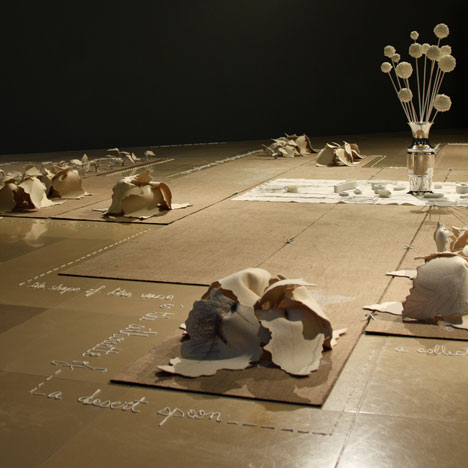
Vienna Design Week 2010: Dutch designers Studio Makkink & Bey present an installation combining sugar and silver at the Liechtenstein museum in Vienna.
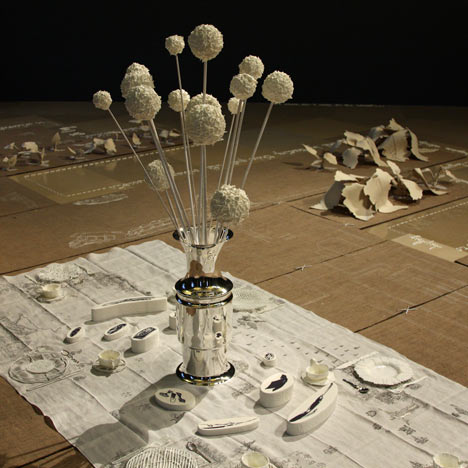
Called Silver Sugar Spoon, the project involved delving into the history of sugar in Vienna, where its value was equal to that of silver during the Habsburg family's reign.
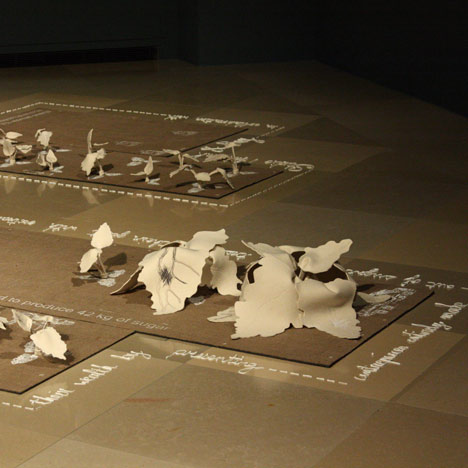
The studio's research is piped in icing on and around 42 square meters of fabric, laid out on the floor representing the 42 kilograms of sugar consumed by each Austrian in a year, while felt models of sugar beet plants help to tell the story of sugar's manufacture.
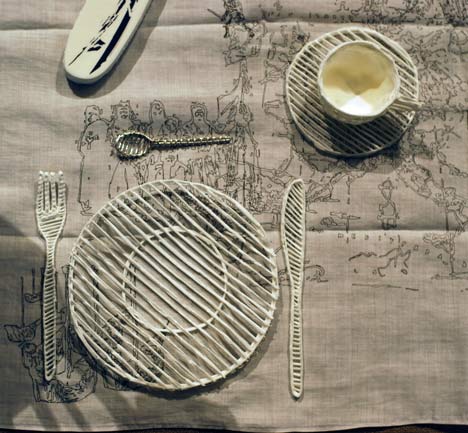
Distorted drawings of cakes placed on a central tablecloth appear correctly when reflected in the surface of a silver vase filled with sugar flowers, which is surrounded by plates and cutlery modelled in icing and cast in silver.
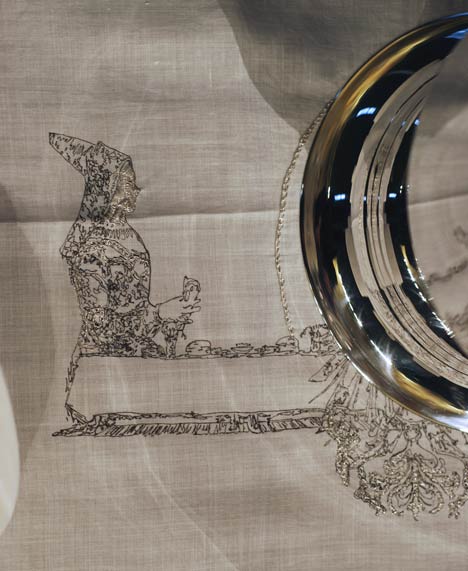
Studio Makkink & Bey collaborated with Viennese bakeryK.U.K. Demel and silversmiths Jarosinski & Vaugointhroughout the project.
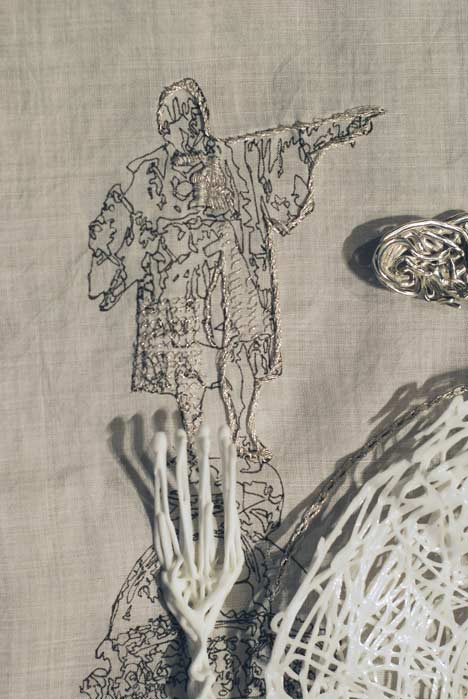
The installation remains in place until 15 November.
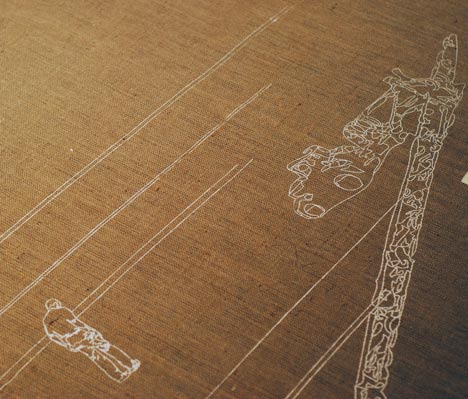
See all our stories about Vienna Design Week »
The following information is from Studio Makkink & Bey:
30th of september – 15th of november, Grand Opening of the Vienna design week, Thursday, 30th september 2010.
Studio Makkink & Bey are proposing to design tableware and products in answer to the Habsburg valuables found in the Imperial Silver Collection. To start the project our designers delved into the history of sugar and silver, Imperial conduct and pastry cooking. Sugar used to be equally valuable to silver and many affluent citizens were eager to display their wealth by presenting centerpieces entirely made of sugar and treat their guests to extravagant desserts. Studio Makkink and Bey will partner with two highly specialised companies, with roots dating back to the Habsburg era; Sugar Bakery K.U.K. Demel and silversmith company Jarosinski & Vaugoin. Both of which used to serve the Habsburg family during their reign, they will join us to build on the rich history of the Austrian legacy.
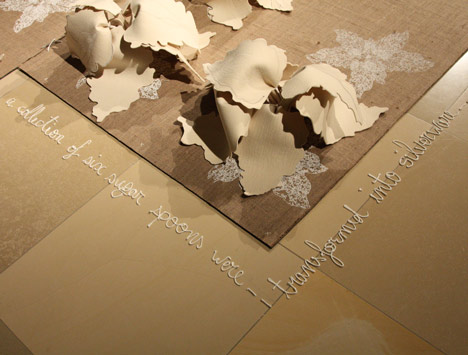
The studio has been a temporary sugar laboratory to test and sketch out objects before casting them in silver. A collection of six sugar spoons are transformed into silverware. A tablecloth serves as a chronicle of the sugar history, stories being embroidered or drawn on the textile cloth. A carpet of forty-two square meters lays around the tablecloth and represents the production process of sugar in correlation to the forty-two kilos of sugar consumed per person in Austria every year. Each kilo of sugar cubes requiring one square meter in order to be produced. The centerpiece is a big vase, containing a flower arrangement made of sugar.
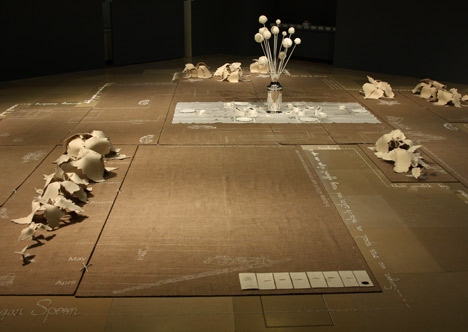
The vase is a beautifull demonstration of the Silver making by its size, fifty centimeters high. Its shape has been drawn by the silhouette of a dessert spoon. Both vase and imagery, work together to create an optical illusion. The image on the tablecloth is deformed in such a way that the bulged reflection on the vase restores it back into original, coherent version (an optical illusion known as anamorphy). The Silver Sugar Spoon is a frozen scenery of a dessert ceremony in a sugar beet field.
No comments:
Post a Comment